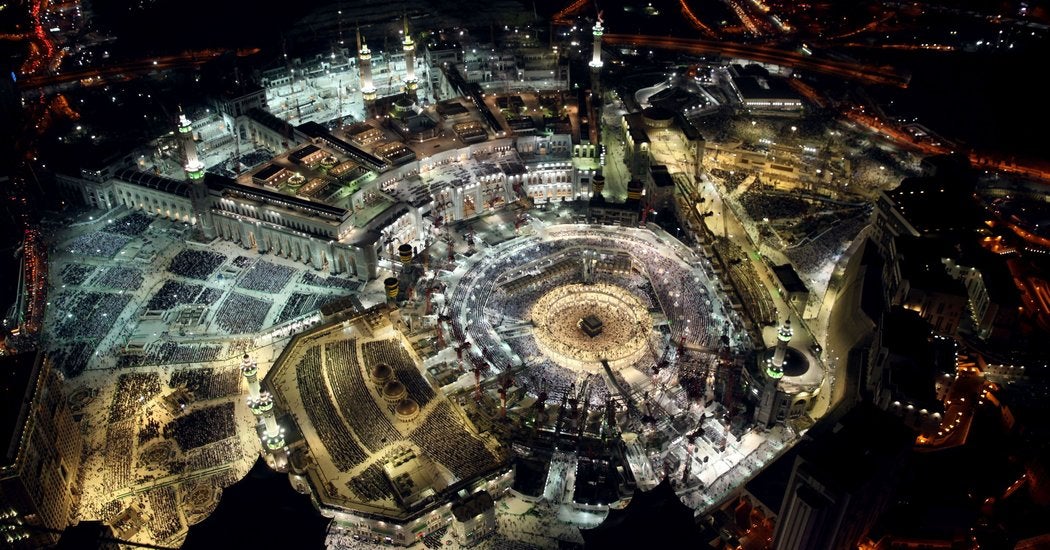The Importance of Hajj – Journey to Mecca

Have you ever wondered why millions of Muslims worldwide embark on the pilgrimage to Mecca, known as Hajj? This sacred journey holds profound significance in Islam, symbolizing unity, spirituality, and devotion.
Let’s delve deeper into the importance of Hajj and why it is considered one of Islam’s most important acts of worship.
Spiritual Essence of Hajj
Hajj is one of Islam’s five pillars, the fundamental acts of worship required of every Muslim. It is an annual pilgrimage in the Islamic month of Dhul-Hijjah, during which Muslims from all corners of the globe gather in Mecca, the holiest city in Islam.
The journey is deeply rooted in the teachings of Prophet Muhammad (peace be upon him) and traces back to the time of Prophet Ibrahim (Abraham).
The Spiritual Significance of Hajj
At its core, Hajj is a spiritual journey that symbolizes unity, humility, and devotion to Allah. It is a time for Muslims to purify their souls, seek forgiveness for past sins, and renew their faith.
The rituals of the Hajj date back to the time of Prophet Ibrahim (Abraham) and his family, emphasizing submission to Allah’s will and obedience.
From the Tawaf (circumambulation) around the Kaaba to the symbolic stoning of the devil at Mina, each ritual holds profound spiritual meaning for pilgrims.
The Social Significance of Hajj
Hajj is not just a personal journey but also a communal experience that fosters a sense of unity among Muslims from diverse backgrounds.
During the Hajj, all pilgrims are equal in the eyes of Allah regardless of nationality, ethnicity, or social status. The gathering of millions of Muslims in Mecca underscores the global unity of the Islamic Ummah (community), transcending geographical and cultural boundaries.
This communal aspect of Hajj reinforces the bonds of brotherhood and sisterhood among Muslims worldwide.
The Personal Significance of Hajj
For many Muslims, performing Hajj is a lifelong dream and a profoundly personal journey of spiritual fulfillment. It is a time of introspection, self-discovery, and self-improvement.
The challenges and hardships faced during Hajj, such as the rigorous rituals and crowded conditions, are tests of patience, perseverance, and resilience.
Pilgrims return from Hajj with a renewed sense of purpose, a heightened awareness of their spiritual responsibilities, and a deeper connection to their faith and community.
Unity and Equality Among Believers
One of the most profound aspects of Hajj is the sense of unity it fosters among Muslims.
Regardless of nationality, ethnicity, or social status, pilgrims dress in simple white garments known as Ihram, symbolizing equality and humility before Allah.
Rich and poor, young and old, all stand side by side, united in worshiping the One Almighty God. This collective experience of solidarity reinforces the notion of brotherhood and sisterhood in Islam.
Spiritual Purification and Renewal
Hajj is a journey of spiritual purification and renewal. Pilgrims undergo a series of deeply symbolic rituals that remind them of the tests faced by Prophet Ibrahim and his family.
From the Tawaf, who circle the Kaaba seven times, to the Sa’i, who walk between the hills of Safa and Marwa, each ritual holds profound meaning and strengthens one’s faith and devotion to Allah.
Forgiveness and Redemption
Participating in Hajj allows Muslims to seek forgiveness for past sins and start anew. It is believed that performing Hajj with sincerity and humility can lead to the forgiveness of all previous transgressions.
This aspect of the Hajj underscores Allah’s mercy and compassion. He welcomes His servants with open arms, ready to forgive them and grant them a fresh start.
Strengthening Bonds with Allah
Hajj is a deeply spiritual journey that strengthens the bonds between the pilgrim and Allah. Through prayer, supplication, and reflection, pilgrims deepen their connection to the Divine and reaffirm their commitment to living a righteous life.
The intense spiritual atmosphere of the Hajj reminds us of our ultimate purpose in life: to worship and submit to Allah’s will.
In a Nutshell
Hajj is much more than just a physical journey to Mecca; it is a profound spiritual experience that encapsulates the essence of Islam.
From the unity and equality among believers to the spiritual purification and forgiveness it offers, Hajj holds immense significance in the hearts of Muslims worldwide.
As pilgrims embark on this sacred journey, they are reminded of their ultimate purpose in life – to worship Allah and seek His pleasure.
May we all strive to embody the values of Hajj in our daily lives and draw closer to our Creator with each passing day.

